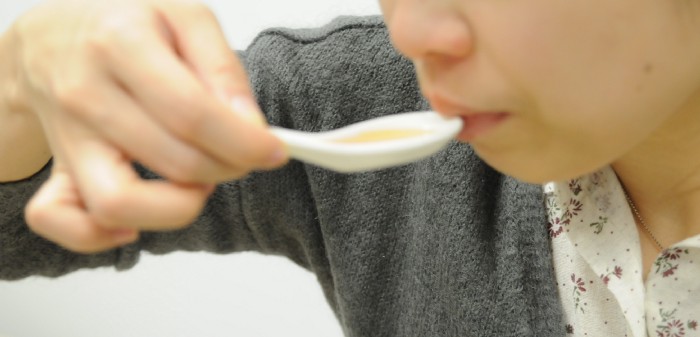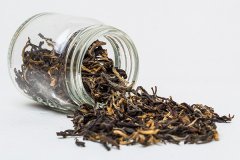How should high-grade good tea taste tea? The correct method and skill of tasting tea tongue and mouth
If you want to delve into the truly complex properties of tea, revealing all its flavors and nuances, you might want to consider giving these tips a try. Because to fully experience what tea has to offer requires some rituals and a very special way of tasting tea. We warn you: If you are afraid of making strange noises in front of others, you should do it at home alone. But if you don't care what other people think, then you can drink tea this way no matter where you are. To truly enjoy a complete meal, you need to discard tea bags and use teapots and loose leaves. You should also consider measuring the water temperature with a thermometer before making tea, as different teas work best at different temperatures. Use filtered water, not tap water--this is the basic principle of making good tea. Finally, after the tea is poured, stick your nose into the teapot and see how much aroma you can smell. You will soon discover that aroma is an important factor in tea tasting.

Professional tea tasters don't just drink their tea; they make the sound that people make when they drink hot soup. The key is not to let the tea cool, but to let it aerate, allowing more aroma to waft to the olfactory area (that is, your nose) to smell and taste the tea. If you think the tea is too hot, wait a few minutes. Tea should be warm, not hot. You can do this by drinking tea hard, inhaling quickly through your mouth, and letting the tea flow between your lips and teeth. Don't be afraid to make loud noises. Once you put the aerated tea in your mouth, tap it gently with your tongue and cheek to give every taste bud a chance to taste it. By tasting and smelling tea, we have access to an infinite repository of knowledge that we use as reference points. This method is also often seen in cup testing coffee, which is commonly referred to as sipping. A few things to watch out for: taste. Estimate the weight of tea leaves. Does it feel thin as water or thick as cream? "Body" refers to the weight of the tea, i.e. the substance or texture it contains. White tea and Chinese green tea are very weak and feel almost like water. Thick Japanese green tea usually feels like broth, a bit like heavier chicken soup. Some oolong teas are actually called "creamy" because they wrap around your mouth like thick cream. Black tea comes in different portions: The taste of black tea is often described as refreshing or astringent because it dries the mouth. The taste of tea is also one of the best indicators of brewing intensity. While poorly cooked tea still releases a lot of aroma, its body suffers. Is the tea weak or pale? Even the weakest tea should have a little texture; thin tea may take more time to brew and may also require more dried tea leaves. Or does it taste bitter and make you pout? Then this tea may be overcooked. Taste. Once you have determined the aroma and taste of the tea, you can finally begin to tease out its flavor. Ask yourself what else this tea tastes like: spinach? Mangoes? Continue to taste. Like good wine, tea changes its taste the longer it stays in your mouth. As the tea cools, the taste also changes, and in some cases, such as kudzu and oolong tea, when you rebrew the tea leaves. After you swallow the tea, see how long you can drink it. The last sign of a good tea is how long its taste stays in your mouth after you swallow it. This is known as the "aftertaste" of tea, and some teas can last 10 to 15 minutes. That's all it is! Except for one Hani rule: Have fun! My father learned a valuable lesson from Bernd Woolf, the famous German tea broker, who taught him how to taste tea. He told my father to watch his mood as he sipped, then offered advice like this: "Buy only tea that makes you smile." As you begin your tea tasting journey, think about which tea you like and which tea you find boring, and remember this: drink only tea that makes you smile.
Important Notice :
前街咖啡 FrontStreet Coffee has moved to new addredd:
FrontStreet Coffee Address: 315,Donghua East Road,GuangZhou
Tel:020 38364473
- Prev

The correct brewing temperature and time parameters of Assam black tea share which brand of Assam black tea is authentic
About Assam Black Tea Assam is a nutritious black tea grown in Assam, India. This kind of tea is usually one of the main ingredients of popular mixed breakfasts, such as English breakfast and Irish breakfast. Although Assam can be drunk alone because it is a bold, astringent cup, it is strong enough.
- Next

What are the top ten famous tea brands in Anhui? How much is Anhui Keemun Black Tea per jin?
Welcome to Anhui in eastern China.
Related
- Unexpected! Ruixing Telunsu lattes use a smoothie machine to foam milk?!
- % Arabia's first store in Henan opens into the village?! Netizen: Thought it was P's
- Does an authentic standard mocha coffee recipe use chocolate sauce or powder? Mocha Latte/Dirty Coffee/Salty Mocha Coffee Recipe Share!
- What is the difference between Vietnam egg coffee and Norway egg coffee? Hand-brewed single product coffee filter paper filter cloth filter flat solution!
- What is the difference between sun-cured and honey-treated coffee? What are the differences in the flavor characteristics of sun-honey coffee?
- How to make Italian latte! How much milk does a standard latte use/what should the ratio of coffee to milk be?
- How to make butter American/butter latte/butter Dirty coffee? Is hand-brewed coffee good with butter?
- Is Dirty the cold version of Australian White? What is the difference between dirty coffee/decent coffee and Australian white espresso?
- Relationship between brewing time and coffee extraction parameters How to make the brewing time fall to 2 minutes?
- Got entangled?! Lucky opens a new store, Mixue Ice City, and pursues it as a neighbor!

